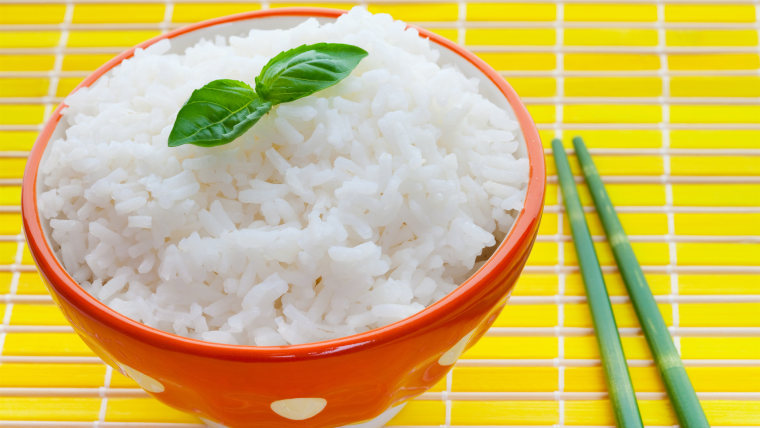New tests by Consumer Reports have found many types of rice products on grocery shelves contain varying levels of arsenic. The Consumer Reports researchers tested samples of basmati, jasmine and sushi rice for inorganic arsenic, a chemical which is potentially more dangerous than the organic type found in the environment.
Basmati rice from California, India and Pakistan has among the lowest arsenic levels of the products tested. Brown rice, although rich in nutrients, was found to contain higher amounts than most white rice tested. Grains such as quinoa, amaranth, millet and barley contained lower levels of arsenic, according to the Consumer Reports testing.
Go here for the original report
Traces of arsenic are present in many foods, including grains, fruits and vegetables, according to Madelyn Fernstrom, NBC News health and nutrition editor. Tiny amounts come from the plant absorbing arsenic from the soil —rice absorbs it more easily than most foods do.
While there is no federal limit for arsenic, the Food and Drug Administration says rice can be consumed safely as part of a varied diet. Long-term exposure to arsenic is linked to higher rates of skin, bladder and lung cancers, and the FDA says it is monitoring toxic elements, including arsenic, in certain domestic and imported foods.
According to the USA Rice Federation, studies by the FDA show arsenic levels in rice in the U.S. are not a health concern. But based on its new findings, Consumer Reports researchers are asking the FDA to set limits for arsenic in rice and fruit juices.
On Tuesday, Congresswoman Rosa DLauro (D., Connecticut), issued a statement supporting the Consumer Reports findings, saying "the federal government must [to] more to ensure our food supply is safe." In 2012, DeLauro introduced a bill that would require the FDA to set a maximum limit of arsenic in rice and rice products.
